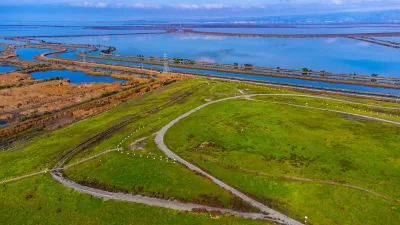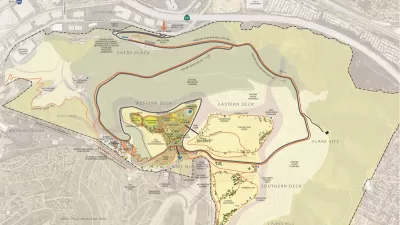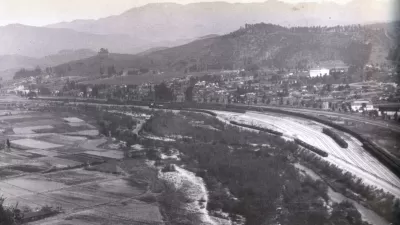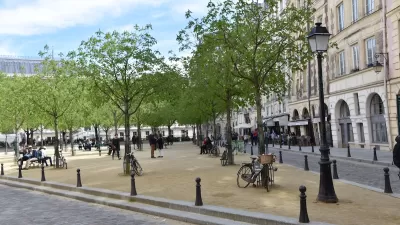The 2024 CLRC showcased innovative strategies for transforming brownfields into sustainable, equitable community assets, emphasizing environmental, social, and economic empowerment through land reuse.

The 2024 California Land Recycling Conference (CALRC) opened with a powerful question posed by U.S. Environmental Protection Agency (EPA) Region 9 Administrator Martha Guzman: “How many of you believe in redemption?” Her reference to the reinvestment in brownfields set the tone for the event, which explored the transformative potential of land reuse in communities. Nearly 400 attendees gathered in Carson, California, to learn from 80 speakers across 32 sessions. This year’s theme, From the Ground Up, highlighted brownfield redevelopment as a way to empower communities through environmental, social, and economic innovations while advancing equity.
A standout session was the Women Visionaries panel, where prominent female leaders like the California Department of Toxic Substances Control (DTSC) Director Dr. Meredith Williams, EPA Deputy Administrator Cheree Peterson, and Greenlining Institute CEO Debra Gore-Mann shared their experiences of navigating non-traditional career paths. They encouraged young professionals to use their voices, embrace bravery, and work toward justice. Scholars Leah and Richard Rothstein emphasized the need to address segregation through policy changes and innovative land reuse, advocating for dense zoning and mixed-income housing to create more equitable communities.
Interactive sessions at CALRC also introduced participants to new tools and strategies for land reuse. Workshops focused on funding strategies, community engagement, and housing entitlement processes, while technical sessions discussed the environmental impact of land cleanup efforts. Attendees were inspired by case studies from Fresno, West Sacramento, and Oakland, showcasing how revitalizing parks and creating affordable housing can uplift underserved areas. The conference closed with a call to action, urging participants to apply the knowledge and connections they gained to continue building a more just and sustainable future.
FULL STORY: CALRC 2024: From the Ground Up

Planetizen Federal Action Tracker
A weekly monitor of how Trump’s orders and actions are impacting planners and planning in America.

Congressman Proposes Bill to Rename DC Metro “Trump Train”
The Make Autorail Great Again Act would withhold federal funding to the system until the Washington Metropolitan Area Transit Authority (WMATA), rebrands as the Washington Metropolitan Authority for Greater Access (WMAGA).

DARTSpace Platform Streamlines Dallas TOD Application Process
The Dallas transit agency hopes a shorter permitting timeline will boost transit-oriented development around rail stations.

San Francisco's School District Spent $105M To Build Affordable Housing for Teachers — And That's Just the Beginning
SFUSD joins a growing list of school districts using their land holdings to address housing affordability challenges faced by their own employees.

Car-Centric LA Suburb Looks to a Train-Oriented Future
City leaders in Rancho Cucamonga, the future western terminus of the Brightline West rail line to Las Vegas, want to reimagine the city as a transit-oriented, pedestrian-friendly community.

New Alaska Bitcoin Mine Would Burn as Much Energy as the State’s Largest Coal Plant
Fueled by “stranded” natural gas, the startup hopes to become the largest in the US, and to make Alaska an industry center.
Urban Design for Planners 1: Software Tools
This six-course series explores essential urban design concepts using open source software and equips planners with the tools they need to participate fully in the urban design process.
Planning for Universal Design
Learn the tools for implementing Universal Design in planning regulations.
Municipality of Princeton
Roanoke Valley-Alleghany Regional Commission
City of Mt Shasta
City of Camden Redevelopment Agency
City of Astoria
Transportation Research & Education Center (TREC) at Portland State University
US High Speed Rail Association
City of Camden Redevelopment Agency
Municipality of Princeton (NJ)





























